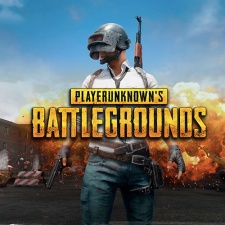Playerunknown's Battlegrounds maker PUBG Corp has given an update about its efforts to crack down on cheating in the battle royale title.
In a post on Steam penned by content manager Sean Orlikowski, the Korean firm says that it is using machine learning to prevent bad actors in the game on top of the two third-party anti-cheat firms it is already working with, BattlEye and Uncheater.
PUBG Corp says that its AI solution examines the "usage patterns" of players to help spot what it dubs "abnormal game patterns.
"On top of these [third-party] protective anti-cheat solutions, we have also applied a machine learning technique that analyses our players' usage patterns and have built a system that can detect abnormal game patterns or actions that interrupt the normal operations of the game coming from hack users," Orlikowski wrote.
"In the process of building these systems, we collaborated with numerous experienced anti-cheat solution companies and top-tier engineers, which has helped us strengthen our game's security."
Furthermore, PUBG Corp has said that 252 people have been arrested as part of its efforts to crack down on those making and selling hacks. The majority of these - 235 - were detained in China, with another 17 arrested in South Korea.
The developer and publisher is working with The Korean National Police Agency in this region - where there are strict new laws against cheating in online games - with arrests in China being part of PUBG Corp's publishing partnership with Tencent - and that company's own team-up with local law enforcement.
"Hack programs that hinder a fair game environment are important to block, but those who develop, promote, and sell hack programs should always be a primary target as well," Orlikowski said.
"To prevent the spread of hack programs, we are working with law enforcement authorities and overseas offices to take strong legal actions both at home and abroad. Below is the outcome of the legal actions taken in 2018, and for the CN region, it is a result of close cooperation with Tencent."
Like before, PUBG Corp says that cheating is an uphill battle and that it isn't letting up on its R&D to minimise bad actors in the battle royale game.
"Each game of PUBG sees up to 100 users trying to beat already incredible odds," Orlikowski concluded.
"We understand that even one person playing unfairly can severely impact the fun of so many people, and thus we need to maintain a much higher level of security than other games.
"We will continue to devote ourselves to this task and while what we have shared today are still early steps in this battle, we will not stop researching and developing new anti-cheat technologies to eliminate as many hack programs, and their developers, as possible.
"We appreciate the patience and trust of all of you and will do all we can to repay that trust. Thank you for your continued support and reporting."
Playerunknown's Battlegrounds isn't the only game to use machine learning to try and prevent cheating. Valve said in March 2018 that it had 1,700 CPUs powering this tech to cut down on bad actors in Counter-Strike: Global Offensive.
Meanwhile, Blizzard says it is hoping to employ machine learning to be able to spot 'toxic gameplay'; when one player is acting in a negative way or griefing others.
Microsoft, too, is looking to use machine learning to help combat cheating, filing a patent for tech to this end last year.

















